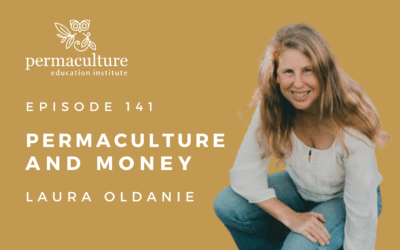Introduction:
It is my pleasure to share with you on this episode of Sense-making in a Changing World conversation with Dr Brian von Herzen, the executive director at Climate Foundation, initiator of the marine permaculture movement, and member of the Permaculture Education Institute. Marine permaculture has been featured on the 2040 Movie and in Paul Hawken’s latest book, Drawdown. To find out more about Marine Permaculture – what it is, how it works, and what benefits it has for ecosystem restoration and reversing climate change. As well as local livelihoods in the global south and contribution to land-based permaculture systems, follow along.
What is Marine Permaculture Movement:
Marine permaculture is an equivalent in permaculture that has the potential to make a significant contribution. Brian works closely with permaculture co-founder David Holmgren, to describe how the physical and marine permaculture approaches align. In addition to how the permaculture principles are incorporated into the marine context. For instance, this makes marine permaculture the way to help us adapt to this changing climate. At the same time, it helps us to draw down carbon and help to regenerate life, regenerate the damage that has been done.
A great example is, off the Eastern shore as a Tasmania, where sadly 95% of the kelp forest is gone. However, people didn’t know why this was happening. As a result, in most of the ocean, the surface layers of the ocean have warmed 1.1 degrees Celsius already. For instance, that is due to the global warming of previous decades in my hometown of Woods Hole, Massachusetts. In addition, the average temperature is increased by more than two degrees Celsius. The result of this is because it’s in a particular hotspot. For example, the Eastern shores of Tasmania, the East Australian current, it’s become stronger and stronger and has brought love warm energy down to the Eastern shores of Tasmania. The result of this is three/four degrees Celsius of warming. As a result, the temperature by itself is a bit of a problem. The temperature creates a warm layer of water that presents a barrier to restoring natural appalling.
If you would like to listen to the podcast on the Marine Permaculture movement, take a listen on Spotify, Apple Podcasts, or on any of your preferred podcast platforms.
Watch Episode 37 with Dr. Brian von Herzen and Morag:
You can watch a previous permaculture masterclass that Brian and I made together about Marine Permaculture (80 min) .
FIND OUT MORE ABOUT PERMACULTURE
Join me to learn more about permaculture. Come and explore the many free permaculture resources my Our Permaculture Life Youtube channel and subscribe to this blog below.
The world needs more permaculture teachers everywhere – local teachers share local ways for one planet living. Let’s work toward a climate-safe future through design, resilience and connection. For you that may be through film and story, kids clubs, workplace education, or hands-in the earth. Whatever the way that moves you to speak up and share, I wholeheartedly encourage.
If that inspires you, I invite you to join the Permaculture Educators Program with others from 6 continents to explore what that might look like and how you can make the change. This is a comprehensive online course that includes the Permaculture Design Certificate and the only online Permaculture Teacher Certificate anywhere. We are a global learning community. People all over the world encourage you to be the change you want to see in the world.
PERMACULTURE FOR REFUGEES
We support free permaculture education for people in refugee camps. Help by donating to Ethos Foundation– our registered charity.
LEARNING TO GROW A GARDEN?
If your main interest is getting a thriving and abundant food garden set up, then take a look at my online permaculture gardening course: The Incredible Edible Garden.
Much love
I acknowledge the Traditional Custodians of the land on which I live and work – the Gubbi Gubbi people. And I pay my respects to their elders past present and emerging.




0 Comments